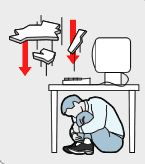-

I blog less often here than I used to... This is exclusively UBC-related stuff now. For other items, you are welcome to drop by abject.ca -
 In-Flux
In-Flux-
Archives
- December 2011
- June 2011
- March 2011
- January 2011
- December 2010
- November 2010
- October 2010
- September 2010
- August 2010
- July 2010
- June 2010
- April 2010
- March 2010
- February 2010
- January 2010
- November 2009
- October 2009
- September 2009
- August 2009
- July 2009
- June 2009
- May 2009
- April 2009
- March 2009
- February 2009
- January 2009
- December 2008
- November 2008
- October 2008
- September 2008
- August 2008
- July 2008
- June 2008
- May 2008
- April 2008
- March 2008
- February 2008
- January 2008
- December 2007
- November 2007
- October 2007
- September 2007
- August 2007
- July 2007
- June 2007
- May 2007
- April 2007
- March 2007
- February 2007
- January 2007
- December 2006
- November 2006
- October 2006
- September 2006
- August 2006
- July 2006
- June 2006
- May 2006
- April 2006
- March 2006
- February 2006
- January 2006
- December 2005
- November 2005
- October 2005
- September 2005
- August 2005
- June 2005
- May 2005
- April 2005
- March 2005
- February 2005
- January 2005
- December 2004
- November 2004
- October 2004
- September 2004
- August 2004
- July 2004
- June 2004
- May 2004
- April 2004
- March 2004
- February 2004
- January 2004
- December 2003
- November 2003
- October 2003
- September 2003
- August 2003
- July 2003
- June 2003
- May 2003
- April 2003
- March 2003
Meta
Monthly Archives: March 2003
The RSS Juggernaut keeps rolling
The RSS-friendly Maricopa Learning eXchange has added XML feeds for different disciplines, outputting the MLX’s five newest resources in each subject field (see lower left).
The discrete charm of visual design…
It’s exciting to see some of the directions that CAREO is taking. Developer D’Arcy Norman is putting a lot of effort into extending the presentation styles for the interfaces, apparently driven by the needs of the SciQ project. The old … Continue reading
Posted in Objects
2 Comments
Open source models and manifestos
I neglected to link to George Siemens’ proposal for Developing Open Source Content that came out a couple of weeks ago. DOSC has four primary purposes: 1. Forum for collaborative creation of open source content. Academic fields are not isolated. … Continue reading
Posted in Administrivia, Emergence, Objects, Webloggia
Tagged Higher Ed, Open Content
Comments Off on Open source models and manifestos
A history of graphic design
!http://www.d.umn.edu/~jkmetz/GDH/esquire.jpg! Lots of great images, from the pre-print era to the present. History of Graphic Design home page via robot wisdom
A learning objects presentation, or a cry for help?
Last week I gave a presentation on reusable media for a group of educators at UBC’s Faculty of Science. I did my best to give a talk that used as little learning object lingo as possible, and left aside any … Continue reading
Posted in Administrivia, Emergence, Objects, Webloggia, XML/RSS
Tagged Higher Ed, Open Content
4 Comments
Web Services for Bloggers, and a Directory…
Technorati is a nifty metablog engine, watching more than 160,000 weblogs, updated every fifteen minutes. It’s essentially a complement to MIT’s Blogdex engine — an excellent way to find like-minded webloggers (by searching for those who linked to a given … Continue reading
Experimental Jetset Vibraphone
Flash version: try different combinations for Harmonic Relaxation.
How to Create a Web Simulation
From Forio Business Simulations, an in-depth and hands-on tutorial on How to Create a Web Simulation. Via OLDaily
Posted in Objects
Comments Off on How to Create a Web Simulation
Use and Abuse of Reusable Learning Objects
A weighty, thoughtful paper on LOs one that Stephen Downes notes takes ‘a fairly traditional line, arguing that only something that “combines its digital element and an exposition” can be a learning object.’
Posted in Objects
Comments Off on Use and Abuse of Reusable Learning Objects
A Modest History of OpenCourseWare
In a piece for the forthcoming Encyclopedia of Educational Technology, David Wiley traces the history of open educational content, from the foundation of the GNU project up through MIT’s OpenCourseWare and later developments.

